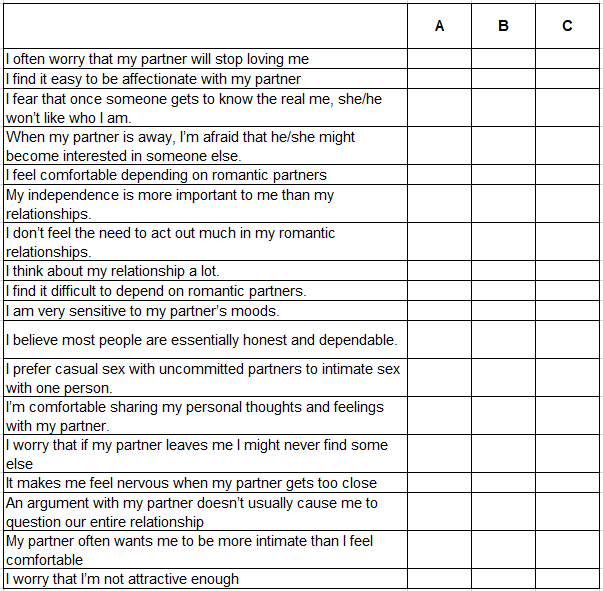Navigating Relationships: Understanding Attachment Styles
Written on
Chapter 1: The Challenge of Finding and Maintaining Love
Establishing a romantic relationship can be challenging, but sustaining that love often proves to be even more difficult. At times, you might feel a disconnect with your partner or question whether a new love interest is truly worth pursuing.
To gain insights into your relational tendencies, consider taking a quiz that uncovers your attachment style. Understanding this aspect can pave the way for a healthy, long-lasting relationship.
Section 1.1: The Importance of Knowing Your Attachment Style
Understanding your attachment style is crucial for fostering a fulfilling relationship or ensuring that you choose a compatible partner. This knowledge is beneficial across various stages of your relationship, including:
- Dating
- Early relationship phases
- Long-term commitments
- Navigating breakups
- Coping with the loss of a partner
By applying attachment theory correctly, you can effectively navigate these different phases and lead a more enriching life.
Subsection 1.1.1: What is Attachment Theory?
Attachment theory posits that your interactions with your romantic partner can be categorized into three relational styles: Secure, Anxious, and Avoidant. These styles often mirror how you were treated by your caregivers as an infant.
If your parents were attentive and responsive, you likely developed a secure attachment style. Conversely, if they responded inconsistently, you might have an anxious attachment style. If they were emotionally distant, your attachment style may be avoidant.

Section 1.2: Exploring the Three Attachment Styles
The three primary attachment styles include:
- Secure: Individuals with this style feel at ease with intimacy and are typically warm and affectionate. They easily connect with others and don’t worry excessively about their partner leaving.
- Anxious: Those with an anxious attachment style yearn for closeness, often feeling preoccupied with their relationships. They may worry about their partner's love and fear that others are reluctant to get close.
- Avoidant: People with this style often associate intimacy with losing independence, making them uncomfortable with closeness. They tend to struggle with trust and may feel uneasy when getting close to others.
It's essential to recognize that these attachment styles vary in:
- Perceptions of intimacy and togetherness
- Approaches to conflict resolution
- Attitudes towards physical intimacy
- Communication of needs and desires
- Expectations from partners and the relationship
Chapter 2: Discovering Your Attachment Style
This video discusses five behaviors that can undermine relationships. Understanding these behaviors can help you identify potential pitfalls in your own interactions.
In this video, the impact of competition on relationships is explored, shedding light on how rivalry can erode connection and trust.
To uncover your attachment style and reinvigorate your relationship, take the quiz provided. Simply check the box that resonates most with you, and the column with the highest tally will indicate your attachment style.

- A corresponds to the anxious attachment style.
- B corresponds to the secure attachment style.
- C corresponds to the avoidant attachment style.
Understanding your own attachment style is pivotal for building a strong, loving relationship. Through collaboration with your partner, you can work towards establishing a secure attachment style over time.
Final Thoughts
Attachment theory reveals that your perceived neediness in a relationship correlates with how well your needs are met. Once those needs are fulfilled, you can focus your energy on broader pursuits.
Avoid leaving your dating life up to chance. Grasping the attachment styles of potential partners can significantly influence your compatibility. Discuss your attachment style with your partner to deepen your bond.
Join over 1,000 subscribers to receive your FREE 3-in-1 Ultimate How-to Guides covering Mindfulness, Relationships, and Ejaculation Control!